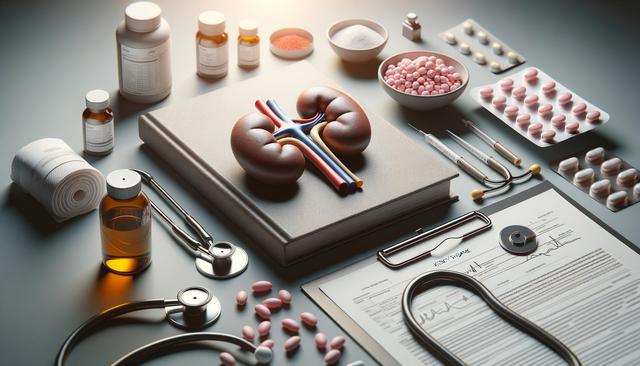Understanding Kidney Disease Treatment
The treatment for kidney disease is multifaceted, aiming to slow the progression of the disease and manage its symptoms effectively. Key aspects of kidney treatment include medication, lifestyle changes, and regular monitoring. For those with chronic kidney disease stage 3, it is crucial to manage blood pressure and glucose levels to prevent further deterioration of kidney function. Medication might be prescribed to help control these factors, alongside dietary adjustments to reduce the kidneys’ workload.
Role of Diet in Kidney Disease Management
Food and nutrition play a pivotal role in managing kidney disease. Individuals with kidney issues need to be mindful of their diet to maintain kidney function and overall health. Here is a list of dietary considerations:
- Limit sodium intake to help control blood pressure
- Reduce protein consumption to decrease kidney strain
- Avoid foods high in phosphorus and potassium
- Stay hydrated but avoid excessive fluid intake
Incorporating these dietary changes as part of the kidney disease treatment plan can significantly affect the progression and management of the condition.
Natural Healing Approaches
In addition to medical interventions, many individuals explore natural healing strategies to complement their kidney treatment. These approaches can include herbal supplements, stress-reduction techniques, and physical activities tailored to individual capabilities. While natural methods can support kidney health, they should be discussed with a healthcare professional to ensure they do not interfere with conventional treatments or medications.
Living with Chronic Kidney Disease Stage 3
Living with chronic kidney disease stage 3 involves adapting to lifestyle changes that support kidney health and overall well-being. Regular medical check-ups are essential to monitor kidney function and adjust treatments as needed. Keeping a close eye on blood pressure, cholesterol levels, and maintaining a healthy weight can help manage the disease effectively. By staying informed and proactive, individuals can enjoy a better quality of life despite the challenges posed by kidney disease.
Foods to Avoid and Embrace
The right diet can make a significant difference in managing kidney disease. Foods high in sodium, potassium, and phosphorus should be limited. Instead, focus on consuming fresh fruits and vegetables that are low in these minerals. Lean proteins, such as chicken and fish, can be consumed in moderation. Whole grains and low-fat dairy options are also suitable choices. Consult with a dietitian to create a personalized meal plan that aligns with your kidney treatment goals.
Conclusion
Effectively managing kidney disease requires a comprehensive approach that includes medical treatments, dietary modifications, and lifestyle adjustments. By understanding the intricacies of kidney disease treatment and incorporating these strategies into daily life, individuals can maintain their health and improve their quality of life. Consulting with healthcare professionals and remaining vigilant about dietary choices are critical steps in managing this chronic condition.
